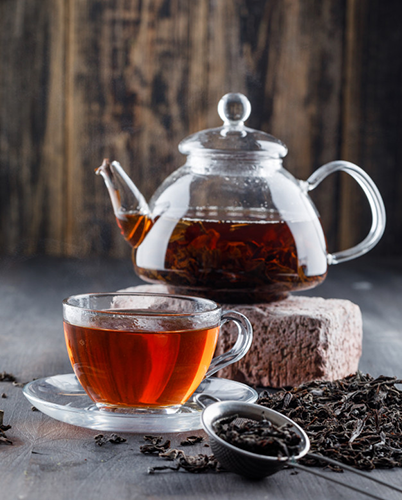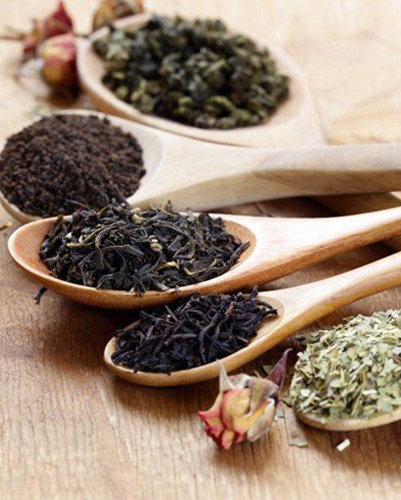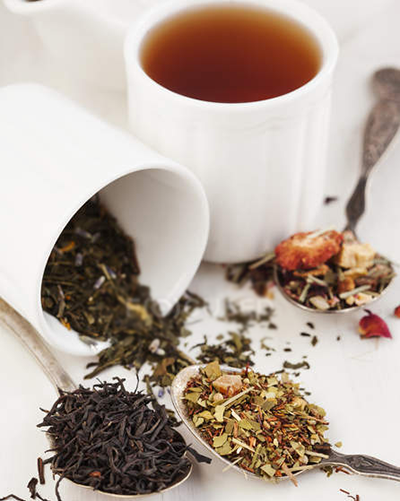Black tea is made from the leaves of the Camellia sinensis plant, the same plant used to make green tea. The leaves are dried and fermented, giving black tea a darker color and richer flavor compared to green tea (which does not undergo the fermentation process).
Black tea contains a number of antioxidants, compounds that help the body fight free radicals (chemical by-products known to damage DNA). These antioxidants include catechin, thearubigins, and theaflavins, and catechins, substances known as flavonoids that are said to combat inflammation and support healthy immune function. Black tea also contains the amino acid L-theanine.

Cardiovascular Disease
Consumption of black or green tea may reduce blood pressure in people with high blood pressure or pre-hypertension, according to a report published in Nutrition Reviews in 2015. Researchers looked at 10 previously published studies evaluating the effects of tea on blood pressure in adults with high blood pressure or pre-hypertension. In their analysis, the report's authors found reductions in systolic blood pressure (the top number in a blood pressure reading) and diastolic blood pressure (the bottom number in a reading) with tea consumption.2
In a 2013 review published in the Cochrane Database of Systematic Reviews, researchers examined previously published studies on the effects of black and green tea on cardiovascular disease prevention and found that black tea resulted in reductions in low-density lipoprotein (LDL) cholesterol and blood pressure. In their conclusion, the study's authors noted that there were very few long-term studies, but the limited evidence suggests that tea has favorable effects on cardiovascular disease risk factors.3
Brain Health
Some research suggests that drinking black tea may improve blood vessel function, improve blood flow in the brain, and lower the risk of cognitive impairment. In a study published in PLoS One in 2015, for instance, researchers found that black tea consumption was associated with better cognitive performance in adults age 60 and older.4
Other research has found no effect. A study involving adults over 60 found no association between black tea or coffee consumption and incidence of dementia or mild cognitive impairment.5 In addition, a 2018 population study of 3,844 men aged 65 and older living in the United States didn't find an association between black tea consumption and cognitive decline.6
Diabetes
In a small study published in 2017, scientists discovered that a black tea beverage decreased blood glucose levels after consumption of a sugar drink (compared to a placebo beverage), however there was no significant difference in insulin levels.7
Cancer Prevention
While some research indicates that regular consumption of black tea may reduce cancer mortality, other studies report no cancer-related benefits of black tea intake. For instance, tea consumption was not found to reduce the risk of prostate cancer,8 endometrial cancer,9 and certain other types of cancer in some studies.10
Furthermore, research published in 2014 suggests that black tea consumption may be positively associated with increased risk of overall breast cancer10 (however, other research from 2013 found no effect on breast cancer risk)







